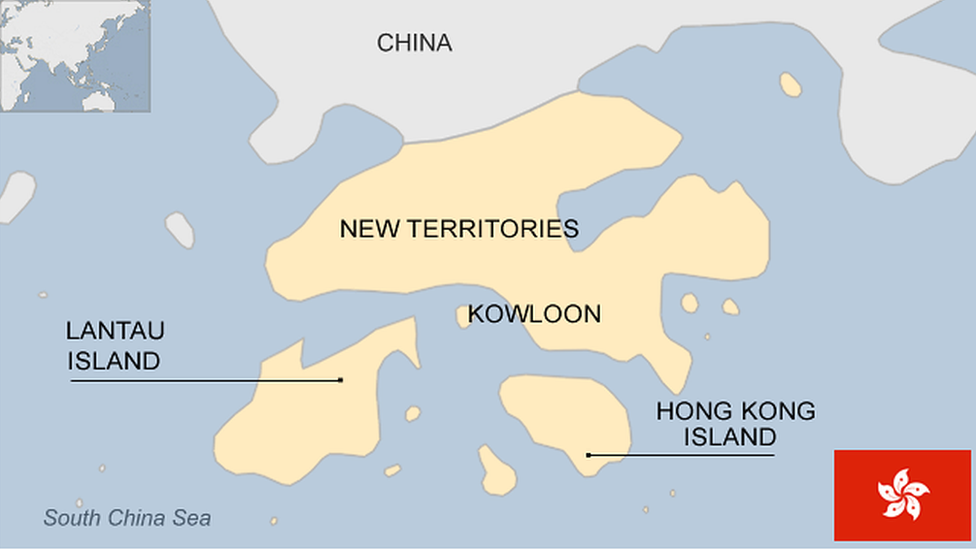Hong Kong election: Youth protest leaders win LegCo seats
- Published
Who are Hong Kong's new young lawmakers?
A new generation of pro-democracy activists has won seats on Hong Kong's Legislative Council (LegCo).
The young leaders want greater autonomy and changes to the way Hong Kong is governed by China. Voter turnout reached a record high of 58%.
Among those elected is Nathan Law, 23, who helped lead the "Umbrella Protests" in 2014 for self-determination.
Despite the gains, China's supporters will continue to hold the majority of seats on the 70-seat council.
Mr Law expressed shock at the result, saying it showed people "wanted change".
What do the activists want?
The election is the first in the territory since the 2014 unrest, when central areas of Hong Kong were paralysed for weeks by mostly young protesters.
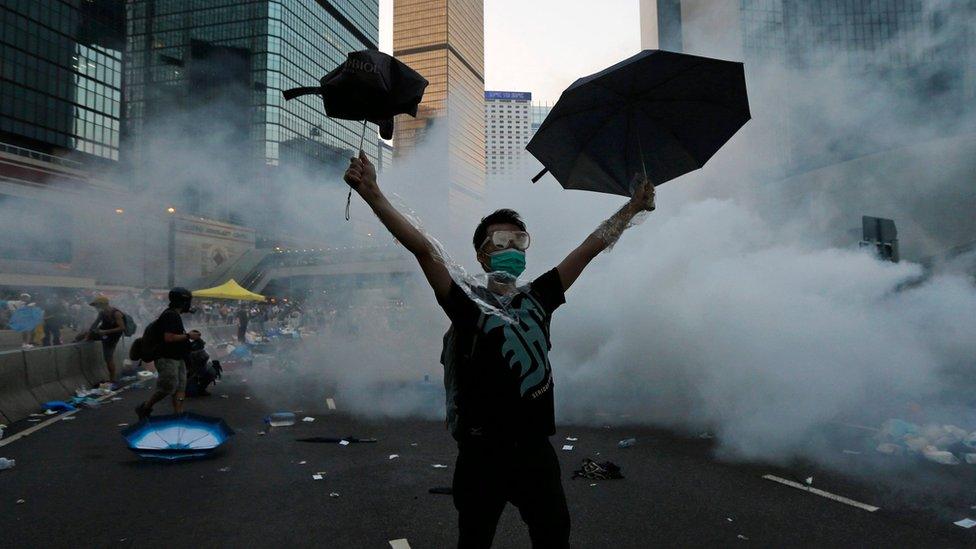
In 2014, thousands of pro-democracy protesters took to the streets of Hong Kong
They were demanding greater democracy for the territory amid concerns that Beijing was increasingly interfering in the politics of the former British colony, breaking the "one country, two systems" agreement.
Beijing denies this, and gave no concessions to the protesters.
"I think Hong Kongers really wanted change," Mr Law, 23, was quoted as saying by the AFP news agency. "Young people have a sense of urgency when it comes to the future."
Mr Law, whose Demosisto party campaigns for the right to self-determination, had the second highest number of votes in the multi-seat Hong Kong Island constituency.
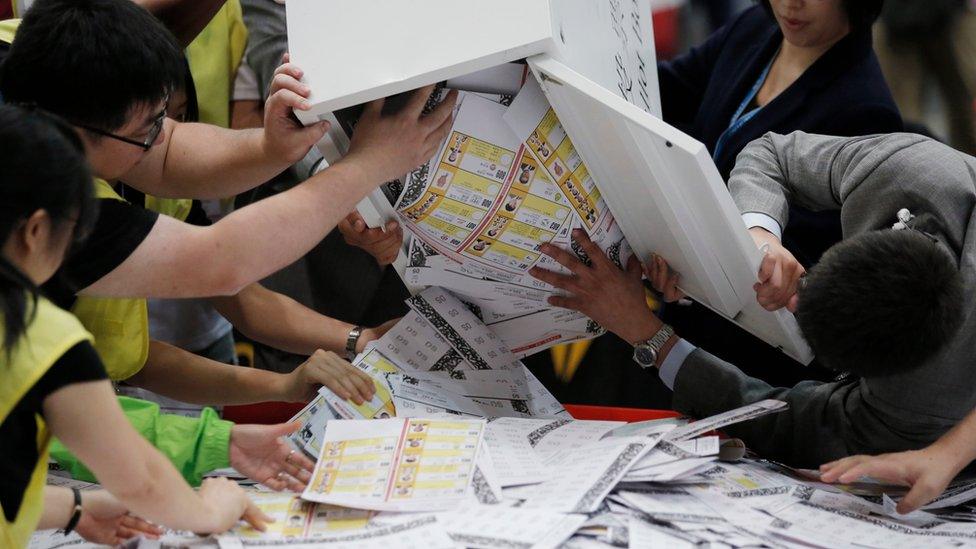
Vote-counting was delayed by a record voter turnout
Two candidates from the Youngspiration party, a more vocally pro-independence movement which also has its roots in the Umbrella Protests, were also on course to be elected.
However, several veteran democrats failed to retain their seats.
"People want change, change meaning that they want new faces... but the price is a further fragmentation [of the pro-democracy camp]," defeated candidate Lee Cheuk-yan told Reuters.
Will these results change anything?
Mr Law warned that pro-democracy legislators would "have to be united to fight against the [Chinese] Communist Party".
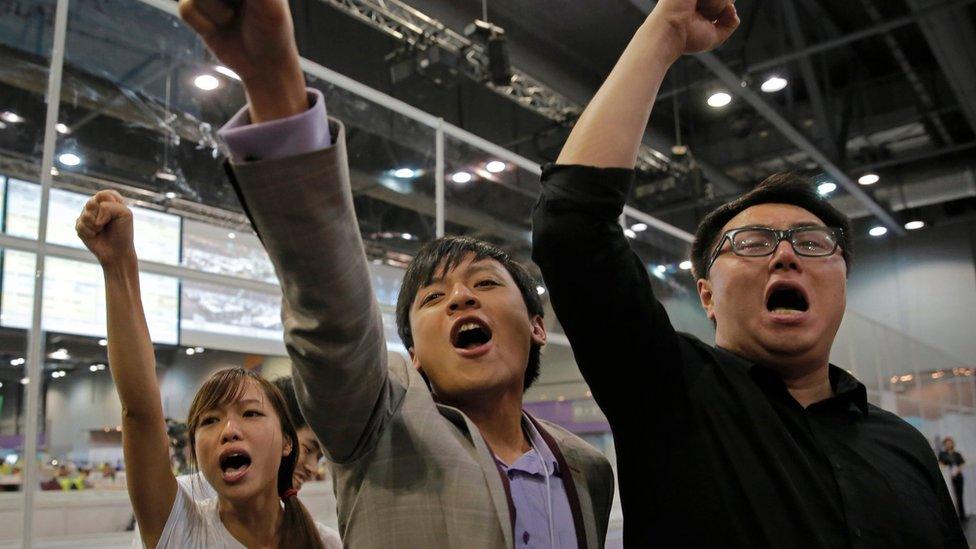
Two pro-independence Youngspiration candidates were also set to win seats
Importantly for Mr Law and his allies, democrats have retained one third of seats in the council - meaning they have the ability to veto major constitutional changes.
There will also be more radical voices in the LegCo, with at least six young candidates who support self-determination for Hong Kong occupying seats.
What will China think?
China's government has always been opposed to any calls for independence, and an official from the Hong Kong and Macau Affairs Office of the State Council reiterated this point on Monday.
Meanwhile, the Hong Kong government's Secretary for Constitutional Affairs Raymond Tam said it would do its best to "bring them [radical activists] around to a more centrist position".
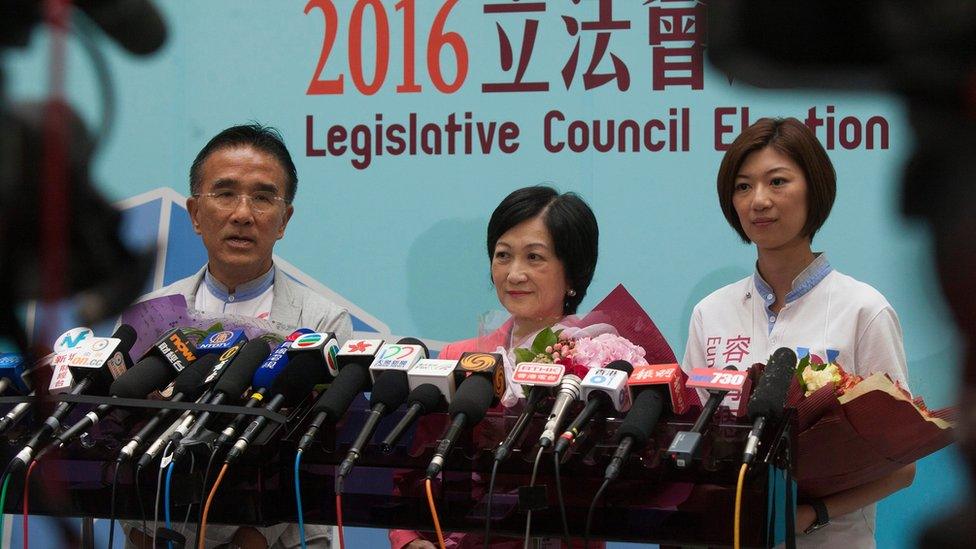
Pro-Beijing politicians will retain a majority in the 70-seat LegCo
"Independence is not realistic at all," said Elizabeth Quat, a member of a pro-Beijing party. "Hopefully this will not be their main objective."
The Chinese government has consistently denounced pro-democracy protests, calling the 2014 street occupations "illegal", and stressed that unity is the way forward for the country.

China media dodges vote, by Kerry Allen, BBC Monitoring
Hong Kong papers have noted the "record high turnout" - the highest since 1997. Apple Daily describes "a blazing atmosphere", with hundreds queuing into the early hours.
The South China Morning Post notes that a "new generation" has emerged from the vote and may "create more headaches for Chief Executive CY Leung's administration".
A lot of mainland Chinese media have refrained from covering the election at all, or only covered it sparingly.
Regulators have even blocked some foreigner broadcasters' coverage of the elections - including the BBC World News channel - and censored social media comments that mention pro-democrats.
Yet the English language edition of Global Times says the days ahead will be "a significant test of whether the pro-establishment camp can maintain dominance".

How does the electoral system work?
Candidates were competing for the 70 seats on the LegCo, which passes laws and budgets in the territory. But only 35 constituency seats are directly elected by the 3.8 million registered voters.
Another 30 seats, called "functional constituencies", represent particular professions or trades and only people connected to those professions or trades can cast votes for those seats.
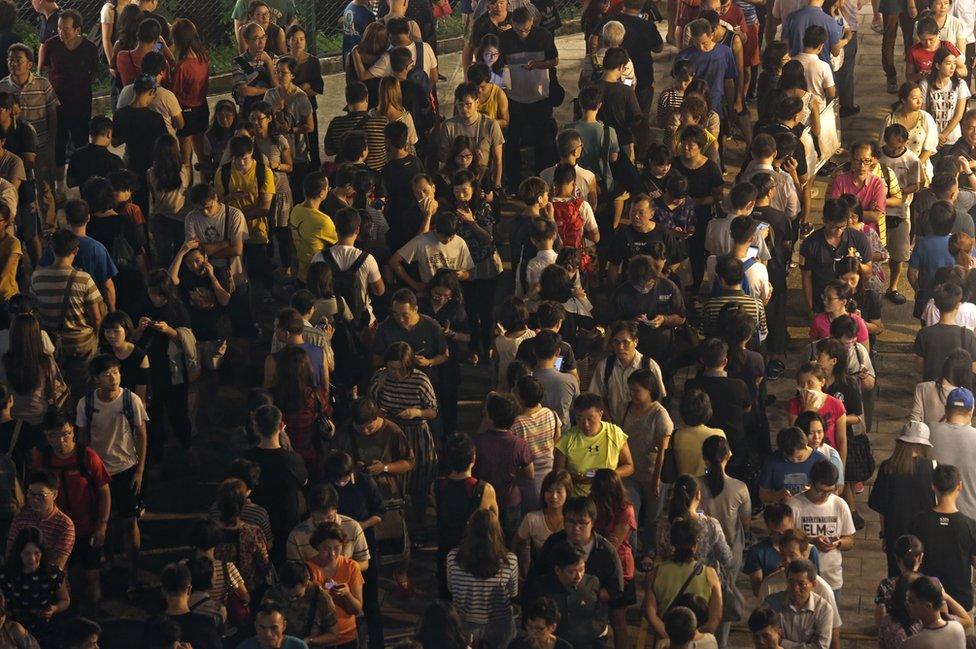
Huge numbers of people queued after the polls closed, amid accusations of poor planning
That is about 6% of the population, and they are mostly Beijing-leaning.
Representatives for a further five functional constituencies, known as "super seats" are chosen by voters across the territory.
The vote does not elect Hong Kong's chief executive, the head of government, but many analysts believe the outcome could have an impact on whether China supports current leader CY Leung for a second term in office.
- Published5 September 2016
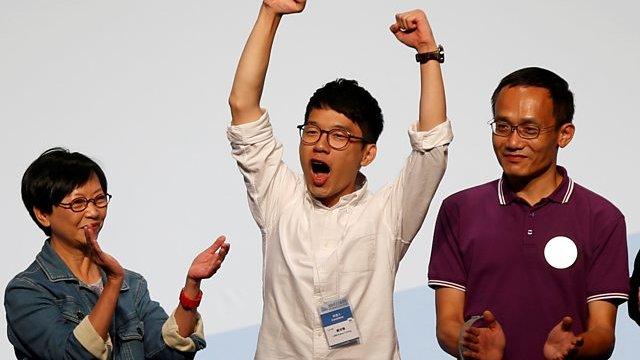
- Published6 September 2016
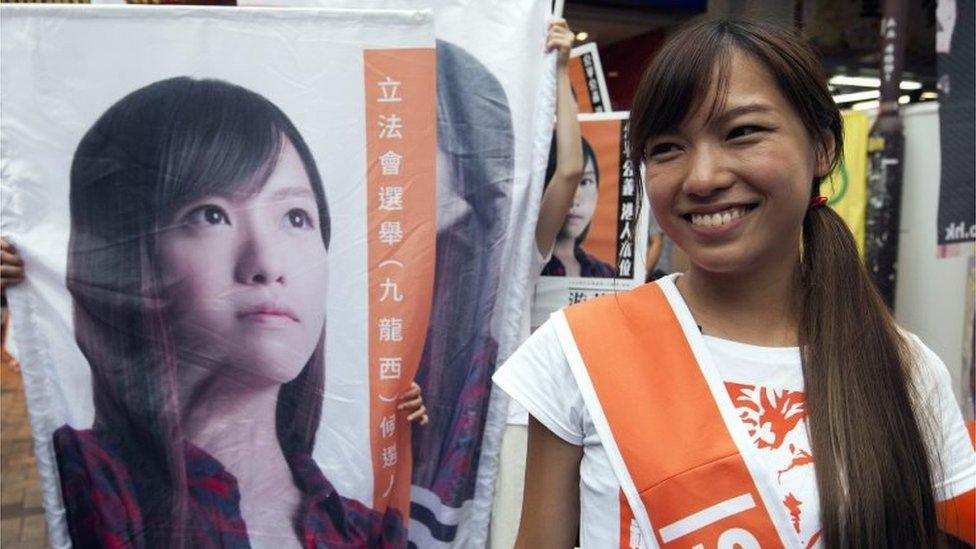
- Published3 September 2016

- Published18 June 2015
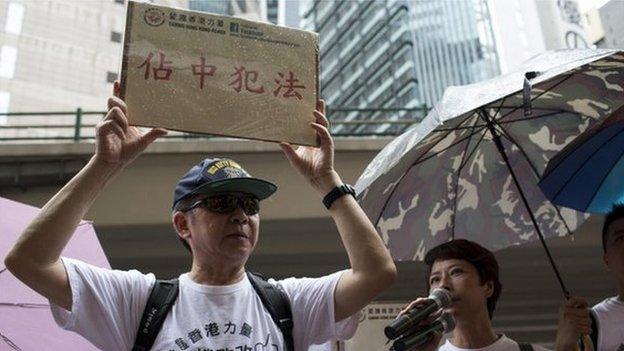
- Published7 January
